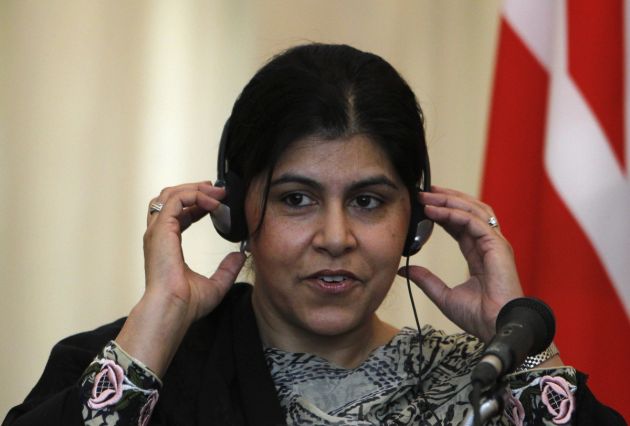UK faith minister warns of religious freedom crisis, in Vatican newspaper

The threat to religious freedom has become a global crisis, the first United Kingdom minister for faith has written in the Roman Catholic daily newspaper, L'Osservatore Romano.
Baroness Sayeeda Warsi, the British Minister for Faith and Communities wrote an opinion piece in the Vatican newspaper Friday in which she highlighted the plight of Christians in the Middle East.
"I believe we should be making a very powerful argument: that not only is religious freedom is a good thing in itself; it is a good thing for economies and societies to progress and flourish," she said.
Warsi is the first female Muslim in Britain and the third follower of Islam to serve in the UK Cabinet and she argued that it is the duty of religious majorities to defend minorities.
"Since taking on my role in 2012 as the first ever UK Minister for faith, I have made the issue of religious freedom a personal priority," said Warsi, who is of Pakistani descent.
"The threat to religious freedom, I believe, has become a global crisis. As a result, the UK government has elevated it to a key priority in our human rights work, and, more broadly, we have shown that we understand the huge importance of religion at home and abroad."
The British minister said she will in 2014 host a "cross-faith response" at an international conference to focus on the crisis. She did not give particulars of the conference.
Warsi also noted she had led the largest ever UK ministerial delegation to the Holy See, almost two years ago.
Her speech to the Pontifical Ecclesiastical Academy focused on the need for people to feel stronger in their religious identities and more confident in their beliefs.
She noted that accepting and even defending another faith does not diminish that person's own beliefs.
"Given the continued plight of Christians in the Middle East and beyond, that argument has become more relevant, and the need to heed it more urgent.
"The bitterest irony of this persecution - ostracism, discrimination, abuse, forced conversion, torture and even murder - is that it is taking place in a region where Christianity has its roots," said Warsi.
CHRISTIAN MINORITIES
The British minister said that sometimes the examples of Christian persecution she mentioned were due to people hitting out at Christian minorities in response to events happening many miles away.
"Other times, a Christian is just a convenient 'other' - a scapegoat," she said.
What is occurring in unacceptable noted Warsi while asserting that the UK government is committed to standing up to persecution which need international political consensus to fight it.
As part of her strategy in September she convened a second meeting of international leaders in New York to discuss what more politicians can do to promote freedom of religion or belief and fight religious intolerance within societies.
"In February I met the Pope of the Coptic Orthodox Church of Alexandria Theodoros II in Cairo and in October I met with Patriarch Gregorios III to discuss the plight of Christians in Syria and I explained our readiness to speak up on behalf of all who are targeted because of their religion or belief."
Warsi quoted Pope Francis saying in Evangelii Gaudium, "interreligious dialogue is a necessary condition for peace in the world, and so it is a duty for Christians as well as other religious communities."
Evangelii Gaudium or the Joy of the Gospel was an "apostolic exhortation on faith" presented by Pope Francis in November.